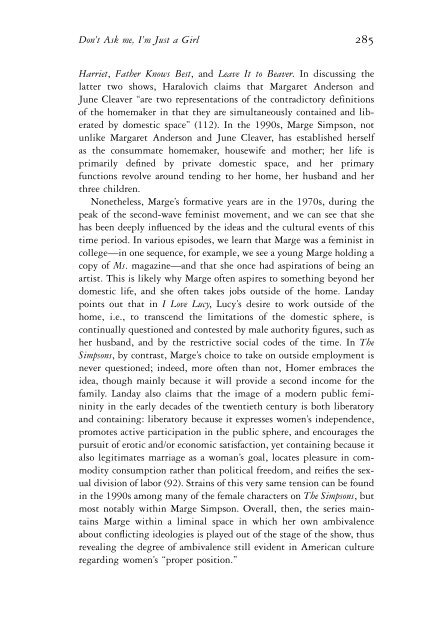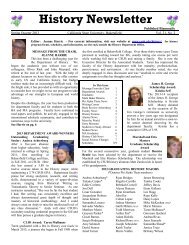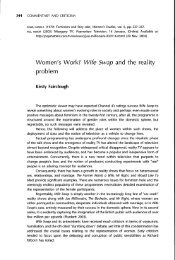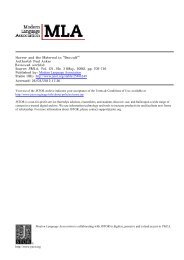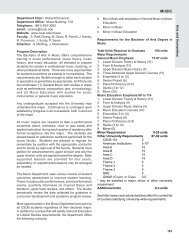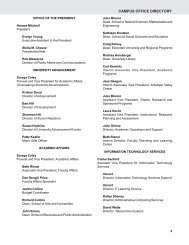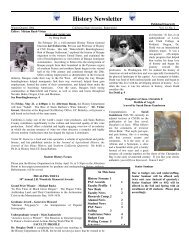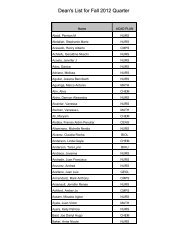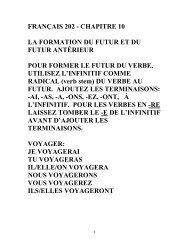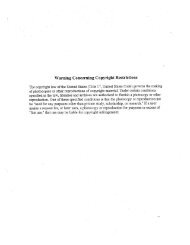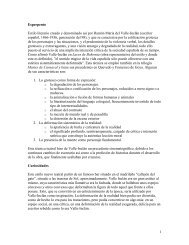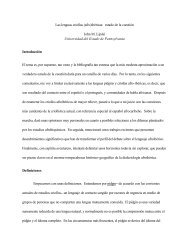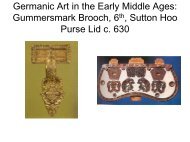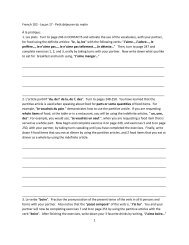''Don't Ask me, I'm Just a Girl'': Feminism, Female Identity, and The ...
''Don't Ask me, I'm Just a Girl'': Feminism, Female Identity, and The ...
''Don't Ask me, I'm Just a Girl'': Feminism, Female Identity, and The ...
Create successful ePaper yourself
Turn your PDF publications into a flip-book with our unique Google optimized e-Paper software.
Don’t <strong>Ask</strong> <strong>me</strong>, I’m <strong>Just</strong> a Girl 285<br />
Harriet, Father Knows Best, <strong>and</strong> Leave It to Beaver. In discussing the<br />
latter two shows, Haralovich claims that Margaret Anderson <strong>and</strong><br />
June Cleaver ‘‘are two representations of the contradictory definitions<br />
of the ho<strong>me</strong>maker in that they are simultaneously contained <strong>and</strong> liberated<br />
by do<strong>me</strong>stic space’’ (112). In the 1990s, Marge Simpson, not<br />
unlike Margaret Anderson <strong>and</strong> June Cleaver, has established herself<br />
as the consummate ho<strong>me</strong>maker, housewife <strong>and</strong> mother; her life is<br />
primarily defined by private do<strong>me</strong>stic space, <strong>and</strong> her primary<br />
functions revolve around tending to her ho<strong>me</strong>, her husb<strong>and</strong> <strong>and</strong> her<br />
three children.<br />
Nonetheless, Marge’s formative years are in the 1970s, during the<br />
peak of the second-wave feminist move<strong>me</strong>nt, <strong>and</strong> we can see that she<br />
has been deeply influenced by the ideas <strong>and</strong> the cultural events of this<br />
ti<strong>me</strong> period. In various episodes, we learn that Marge was a feminist in<br />
college—in one sequence, for example, we see a young Marge holding a<br />
copy of Ms. magazine—<strong>and</strong> that she once had aspirations of being an<br />
artist. This is likely why Marge often aspires to so<strong>me</strong>thing beyond her<br />
do<strong>me</strong>stic life, <strong>and</strong> she often takes jobs outside of the ho<strong>me</strong>. L<strong>and</strong>ay<br />
points out that in I Love Lucy, Lucy’s desire to work outside of the<br />
ho<strong>me</strong>, i.e., to transcend the limitations of the do<strong>me</strong>stic sphere, is<br />
continually questioned <strong>and</strong> contested by male authority figures, such as<br />
her husb<strong>and</strong>, <strong>and</strong> by the restrictive social codes of the ti<strong>me</strong>. In <strong>The</strong><br />
Simpsons, by contrast, Marge’s choice to take on outside employ<strong>me</strong>nt is<br />
never questioned; indeed, more often than not, Ho<strong>me</strong>r embraces the<br />
idea, though mainly because it will provide a second inco<strong>me</strong> for the<br />
family. L<strong>and</strong>ay also claims that the image of a modern public femininity<br />
in the early decades of the twentieth century is both liberatory<br />
<strong>and</strong> containing: liberatory because it expresses wo<strong>me</strong>n’s independence,<br />
promotes active participation in the public sphere, <strong>and</strong> encourages the<br />
pursuit of erotic <strong>and</strong>/or economic satisfaction, yet containing because it<br />
also legitimates marriage as a woman’s goal, locates pleasure in commodity<br />
consumption rather than political freedom, <strong>and</strong> reifies the sexual<br />
division of labor (92). Strains of this very sa<strong>me</strong> tension can be found<br />
in the 1990s among many of the female characters on <strong>The</strong> Simpsons, but<br />
most notably within Marge Simpson. Overall, then, the series maintains<br />
Marge within a liminal space in which her own ambivalence<br />
about conflicting ideologies is played out of the stage of the show, thus<br />
revealing the degree of ambivalence still evident in A<strong>me</strong>rican culture<br />
regarding wo<strong>me</strong>n’s ‘‘proper position.’’


